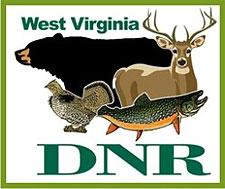1-in-7 West Virginia Bowhunters Qualify as Disabled for Crossbow Use
CHARLESTON, W.Va. -- According to the number of crossbow permits being issued, one in every seven West Virginia bowhunters is too disabled to draw a conventional hunting bow.
Since January 2009, Division of Natural Resources officials have issued 18,000 crossbow permits in a state estimated to have 125,000 bowhunters. "That's very surprising to me," said Curtis Taylor, the DNR's wildlife chief. "Personally speaking, it's way more than I expected."
Taylor's surprise stems from the high percentage of hunters who have claimed physical disabilities in order to hunt with crossbows, which are slightly more powerful and accurate at slightly longer distances than conventional bows.
In Michigan, a state of 9.87 million people, roughly 56,000 hunt with crossbows - about one in every 179 people. In West Virginia, a state of 1.86 million, 18,000 hunt with crossbows - one in every 103. Michigan issues permits to both able-bodied and disabled hunters. West Virginia issues them only to disabled hunters.
Such statistics have caused Taylor to suspect that some able-bodied West Virginians are "qualifying" for crossbow permits by persuading doctors to declare them handicapped when they really aren't.
A state law passed in 2008 requires the DNR to issue crossbow permits to hunters who have been certified by doctors to have "permanent and substantial physical impairments" that render them "unable to use a conventional bow and arrow device."
According to information contained on the application form for a West Virginia crossbow permit, doctors are supposed to administer a battery of tests to determine whether the applicant's hand and shoulder function is too poor to draw a conventional bow.
The tests include a "pinch, grip and nine-hole peg test" to determine hand strength and function; and a "standard shoulder strength test" to determine shoulder function. To qualify for a crossbow permit, the doctor must certify that the applicant has "permanent and substantial loss of function" in one or both hands or shoulders.
"Any handicap that's less than 'permanent and substantial' is not supposed to qualify the applicant for a license," Taylor said.
Randy Benear, former state head of the National Wild Turkey Federation's "Wheelin' Sportsmen" organization for disabled hunters, said he was surprised to learn that so many crossbow permits had been issued.
"It sounds to me like a significant number," he said. "I could be wrong, but I think there are quite a few people getting them that don't really need them."
Benear, a quadriplegic who hunts with a conventional bow that can be locked at full draw and mounted to a mechanical aiming device, likened the state's crossbow-permit proliferation to the proliferation of handicap parking permits.
 "If there's something out there and people have a way to get it, they're going to get it," he said. "Just look at handicap parking. If I go to Walmart on a rainy day, I can count on having to park my van out on the edge of the parking lot and ride my [wheel]chair in because so many able-bodied people have pulled into the handicap parking spots, put their handicap placards on the dashboard and strolled into the store."
"If there's something out there and people have a way to get it, they're going to get it," he said. "Just look at handicap parking. If I go to Walmart on a rainy day, I can count on having to park my van out on the edge of the parking lot and ride my [wheel]chair in because so many able-bodied people have pulled into the handicap parking spots, put their handicap placards on the dashboard and strolled into the store."
Still, he said the number of people who are obtaining crossbow permits doesn't concern him.
"I don't resent people for doing that," he said. "Think of it this way - a good many of those 18,000 people are bowhunting now who, for one reason or another, might not have been able to before."
One concern voiced by able-bodied bowhunters is that the high number of crossbow users might ultimately deplete the number of deer available to all sportsmen.
Paul Johansen, the DNR's assistant wildlife chief, said that isn't likely to happen.
"When you're talking reducing the number of deer, you're talking mainly about removing a certain percentage of females from the population," he said. "So far we have seen no significant impact in that regard from the use of crossbows."
The chief gripe DNR officials have with the high number of crossbow permits they've been required to issue is financial, not biological. Wildlife chief Taylor said it costs the agency $6 in staff time and materials to issue each permit.
"It's an unfunded mandate," he said. "We have to process the applications, produce the licenses, and maintain a database. Eighteen thousand permits at $6 a pop - you do the math. But we're bound by the laws of the state, so we do it."
Taylor believes if the agency were allowed to charge a small fee to cover the costs, the number of permit-seekers would drop significantly.
"At the same time, that would be like charging a guy who wants to muzzleloader hunt 10 or 12 bucks just to muzzleloader hunt," he said. "As far as the law is concerned, a crossbow is just a bow - and bowhunting is allowed under the basic license, no special permit needed."
Taylor said that since the Legislature created the mandate, legislative action would be required to make any changes in the way permits are issued.
"Our job is to do what the legislation calls for us to do, and that's what we've been trying to do," he said.
This article first appeared in the Nov. 11, 2012 Charleston (W.Va.) Gazette. Reprinted with permission.



Leave Comments